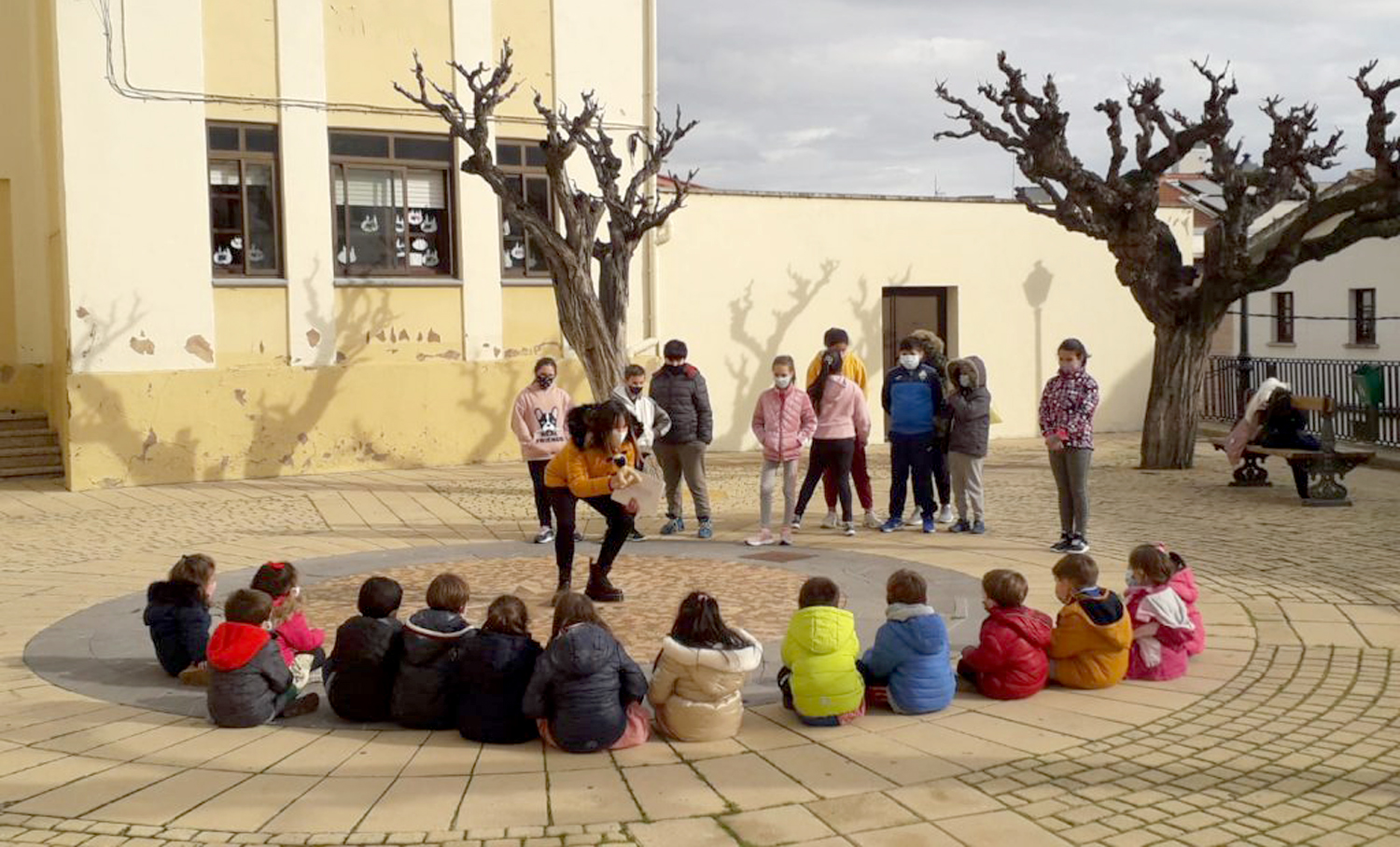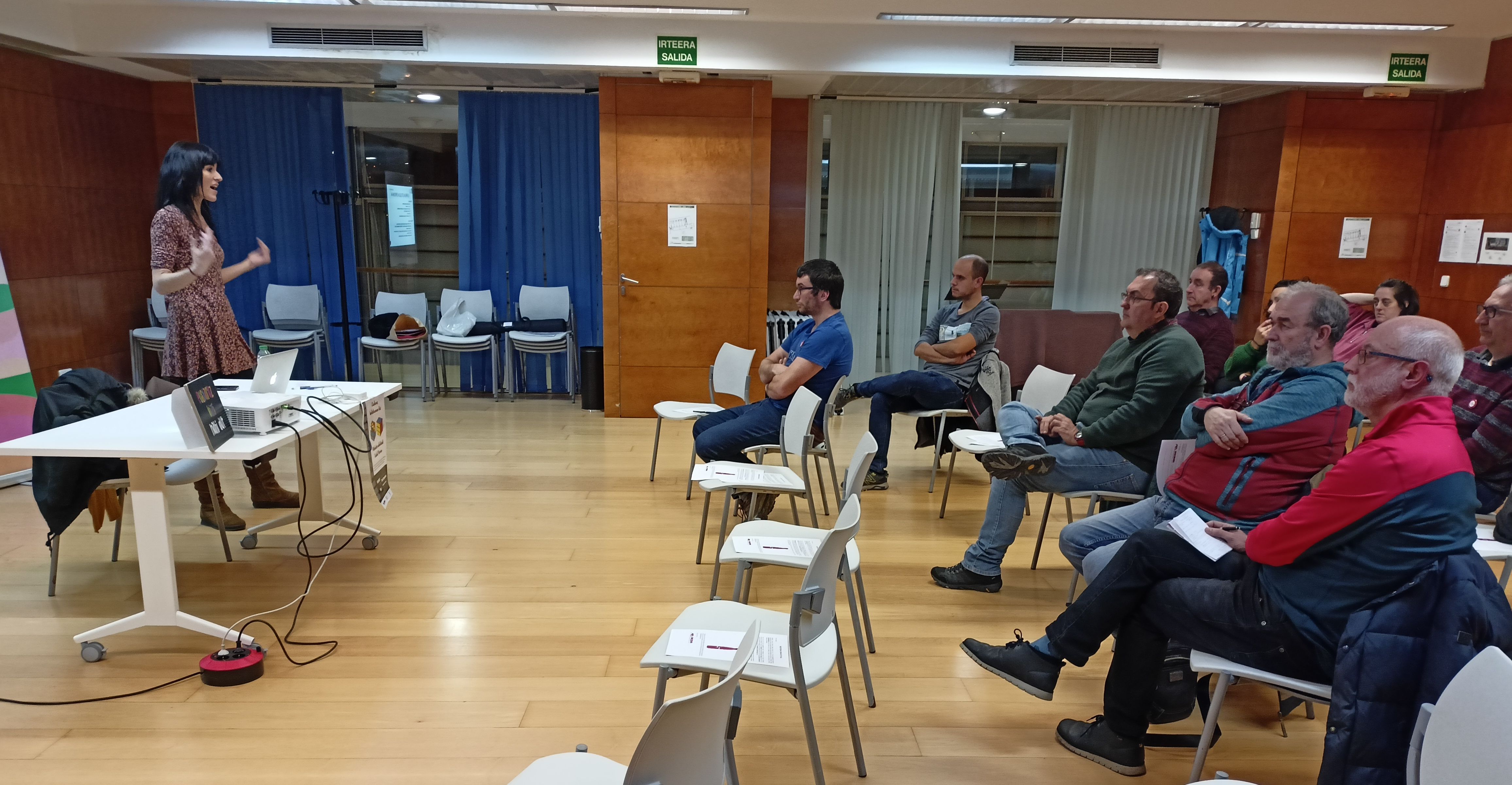The Observatory denounces that, despite the fact that 20 years have passed, linguistic rights continue to be marginalised in public jobs in Navarre
- "The same examples of cases that we denounced 20 years ago have been reproduced. Far from the fact that the knowledge of the Basque country was a mandatory requirement, it did not offer any score or in the non-Basque area established by law, in recent times it has also been seen in the calls for jobs in the mixed area", the Observatory has denounced.

The following news has been published by the OBSERVATORY ON LINGUISTIC RIGHTS.
Last Saturday, the Observatory on Linguistic Rights Behatokia, Observatory on Linguistic Rights, was 20 years old. Two decades offering a tool for the defense of the rights the community needs; two decades placing the parameter of rights in linguistic policies. And at the beginning of the tour, in the summer of 2001, the Observatory presented alzada resources in the various calls of the Government of Navarra, arguing that the Basque language was not valued in the merits section, while the knowledge of French, English or German offered 2 points each. The director of the Observatory, Agurne Gaubeka Erauskin, and the secretary general of the Council of the Basque Country and president of the Observatory, Paul Bilbao Sarria, referred this morning to the public jobs of Navarre at a hearing in Pamplona.
Knowledge in jobs, fundamental to guaranteeing rights
The Council spokesman spoke at the beginning of the hearing and wished to emphasise the importance of Euskera’s knowledge in public administrations, as it is a ‘fundamental measure’ for citizens to relate in Basque with the administration. Taking advantage of the fact that the Centre has now reached its 20th anniversary, it has considered it necessary to point out that the concerns at that time are now being reaffirmed: ‘The same examples of cases that we denounced 20 years ago have been reproduced. The knowledge of the Basque country, far from being a mandatory requirement, did not offer score nor in the non-Basque area established by law, in recent times has also been seen in the calls for jobs in the mixed area".
Bilbao has made it clear: in the last year hundreds of jobs have been occupied in Navarre without the Basque qualification. "20 years ago the Government of Navarra fully implemented the invasive language policy, today we are in a similar situation as regards public posts", explained Bilbao.
Worsening in the last year
The director of the Centre is continuing the intervention of lehendakari and before taking the leap to concrete examples, he talks about the disastrous situation. In Gaubeka’s words, “the situation has worsened since the repeal of some articles of Foral Decree 103/2017”. In fact, “although the Council of Navarre suggested that it was legal for Euskera to be valued in the mixed area established by law, without knowing or scoring the Basque Country, the Government has continued to make calls for access to public jobs”, he added.
Examples of this are public calls for employment in the last year in finance managers, researchers and technicians, responsible for libraries, fire and fire brigades, jobs of the University of Navarra or legal advisers of the Government of Navarra. All of this has a clear conclusion, in the words of the director of the Centre: ‘Taking into account that all these public employees are going to be professionals who provide services to citizens, in certain departments or sections of the Government of Navarre it will not be possible for citizens to receive services in Basque without prejudice to any kind of marginal injury’. Moreover, the fact that a demand is not established today will influence the future, as, as Gaubeka has pointed out, ‘the linguistic rights of future citizens are also conditioned in their entirety’.
The head of the Observatory also wanted to focus on Osasunbidea’s jobs. Among other calls, in primary care and emergency physicians, in medical specialists and in clinical psychologists, language profiles have not been established, so "it is impossible to guarantee adequate health care and the health of the population". “Not only would the Basque country provide points, but the Basque country should have a requirement in all the services of Osasunbidea and throughout Navarre.” It should also be taken into account that the central services, the hospitals… are located in the mixed area that marks the law and that, consequently, the zonal division of the services in Basque by the Government of Navarre undermines the rights of all Navarre citizens.
Three new reading decrees
In addition, Gaubeka referred to the leaks concerning the new decree regulating the use of the Basque Country in the Navarra administration. According to the director, the Basque country would not rate in the non-Basque area established by law, and in the mixed area it would only be suitable for jobs directly serving the citizens and for the positions of Osasunbidea doctors. The President of the Government of Navarre himself has also made it clear that he is not going to take account of Euskera in the non-Basque area established by law, even though the Council of Navarre itself (the highest consultative body of the Foral Community) has stated that Euskera must be valued above foreign languages throughout Navarre.
The director of the Centre has made three readings in the framework of the new decree. First of all, instead of establishing the knowledge necessary to effectively guarantee citizens’ rights, ‘not wanting to score means ignoring people who wish to use their own language in their relations with the administration’. Secondly, this Decree is based on the area in which the service is located and the area in which the citizen resides, ‘Which will promote discrimination and exclusion of the Navarre’. Finally, in the mixed area, where most of the services of the Government of Navarre are provided, the implementation in some jobs of the Basque Country punctuable is a "scam" with regard to guaranteeing the linguistic rights of citizens. In fact, Gaubeka has pointed out that “although Euskera is given a score in some calls, without knowing Euskera it will be possible to obtain almost the same score”.
Justice and equality
With a view to the near future, the director of the Observatory considered it essential that the Basque language be recognised as a language of all Navarre and that it be extended to all areas. And to this end, in the words of Gaubeka, ‘it is necessary to start with the services offered by the government’s own administration’. In fact, “what is called sociolinguistic reality should be built from the principles of justice and equality, opening the doors to what has the least Basque, multiplying the possibilities and offering tools to overcome obstacles”, and not based on the current “reality”, “because we all know that this possible reality has been conditioned by the decisions and scenarios that for decades have been given against the survival and revitalization of the Basque era”.
Demonstration on Friday
At the end of the hearing, the Secretary General of the Euskalgintza Council, Paul Bilbao, took the floor again and, by completing the reading of Agurne Gaubeka, wished to appeal to the demonstration to be held next Friday: “It’s time to go out into the street. We have to go out into the streets to denounce that we are not going to accept any cut in rights. For a society based on justice, equality and cohesion and for an effective regulation guaranteeing linguistic rights to all citizens, on 2 July we will be on the streets’. The demonstration will begin at 18.30 in the afternoon at the Plaza de Baluarte de Pamplona/Iruña.
Hizkuntz Eskubideen Behatokiak publikatu egin ditu ekainean erregistratu dituen eskubide urraketak eta zorion mezuak.
Herritarren hizkuntza eskubideak errespetatzeko neurriak galdegin dituzte. Gaur egun administrazioan telematikoki egin daitezkeen tramiteen %23 soilik egin daitezke euskaraz, eta tokiko erakundeen kasuan %2,5 besterik ez.





















